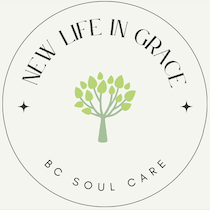
A “nervous breakdown” (or “mental breakdown”) is a term used to describe a period of intense mental distress that occurs progressively or suddenly. During this period, you’re temporarily unable to function in your everyday life.
“Nervous breakdown” is not a medical term or a mental health diagnosis, since it does not describe a specific condition. It doesn’t have one agreed-upon definition but is instead used by many people to describe intense symptoms of stress and an inability to cope with life’s challenges.
The signs of a nervous breakdown vary from person to person. The underlying cause can also affect the types of symptoms you experience. Here are some common signs of a nervous breakdown that can help you evaluate what you or a loved one is experiencing:
- depressive symptoms, such as:
- feeling persistently sad, hopeless or empty
- feeling guilty or worthless
- low energy or fatigue most of the time, even after you’ve slept
- thinking feels cloudy and distracted most of the day
- loss of interest in hobbies or activities that you normally would enjoy
- thoughts of suicide or self-harm or wishing you were dead (please get professional help immediately!)
- anxiety symptoms, which may involve:
- muscle pain, particularly in the jaw, neck or back from muscle tension
- feeling on-edge or restless
- irritability
- hot or cold flushes and clammy hands
- dizziness
- upset stomach and irregular bowel movements
- feeling overwhelmed and unable to concentrate or make decisions
- insomnia symptoms, which include having trouble falling or staying asleep
- panic attacks, which may include:
- extreme fear or a sense of doom
- difficulty breathing
- trembling or shaking
- an accelerated heart rate or heart palpitations
- sweating
- post-traumatic stress disorder (PTSD) symptoms, which occur after a person experiences or witnesses a traumatic event and may include:
- intrusive thoughts, flashbacks, or nightmares about the event
- avoidance of places or situations that trigger related memories
- unable to remember important aspects of the event
- continuing to feel guilt or shame about the event
- feeling emotionally numb and detached from events or people
- having a limited sense of the future (i.e., loss of hope or success)
- hypervigilance – constantly assessing potential threats around you
- self-destructive or reckless behaviors
- extreme mood swings or unexplained outbursts of uncontrollable anger, fear, helplessness or crying
- hallucinations, which means hearing noises or seeing things that do not have an external stimulus
- delusions, which means not being able to distinguish what’s real from what’s imagined
- paranoia, such as believing someone is watching you or stalking you
- signs of withdrawal, which may include:
- avoiding social functions and engagements
- eating and sleeping poorly
- maintaining poor hygiene
- calling in sick to work for days or not showing up to work at all
- isolating yourself in your home1
If you are concerned that you or a loved one is experiencing a nervous breakdown, it is important to seek help and to see a doctor or counsellor. And if you or a loved one is having thoughts of suicide or self-harm or wishing you were dead, please get professional help immediately! This really cannot be overly emphasized.
Untreated mental distress can lead to longer lasting mental health problems, as well as social, physical and spiritual problems. God created us body and soul as a whole, so the condition of our body and soul will affect one another. It is our responsibility and duty to care well for this “temple of the Holy Spirit” (1 Corinthians 6:19-20). Though with many difficulties, it really ought to be a joyful process (though also in much pain) with a heart of thankfulness to the Lord. However, it’s an extremely difficult and even dangerous path to walk through in life alone, and sometimes the pain could feel too overwhelming. So please share your struggles with trusted families and friends, and elicit the support from those who care about you so that they could walk alongside you in this “pilgrim’s progress”.
1. https://www.healthline.com/health/mental-health/nervous-breakdown#contact-a-doctor
© 2022 恩典新生辅导关怀中心 Biblical Counseling Soul Care Center – New Life In Grace. All rights reserved.
❤️ For Biblical Counseling Appointments: please click here.


Leave a comment